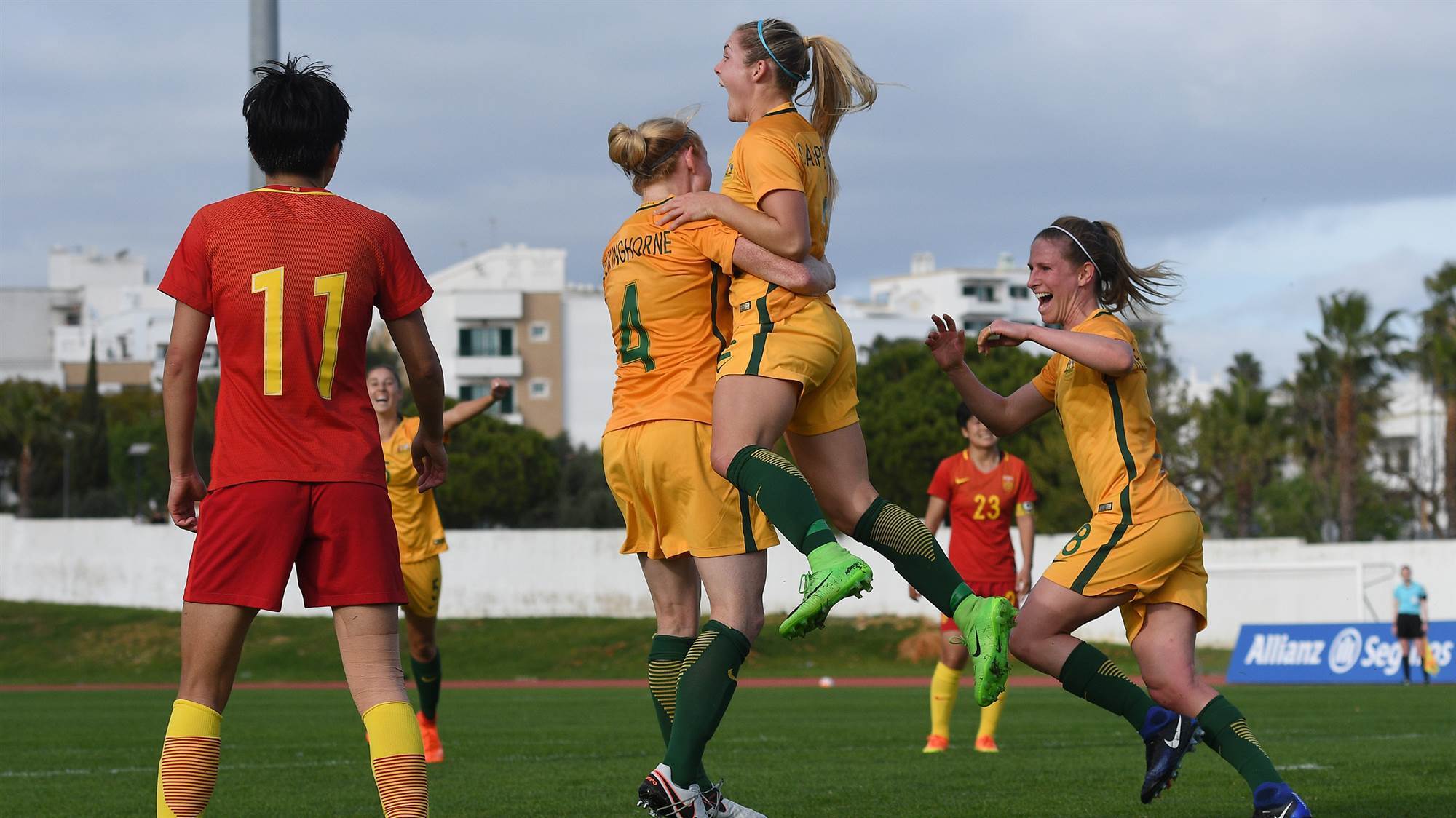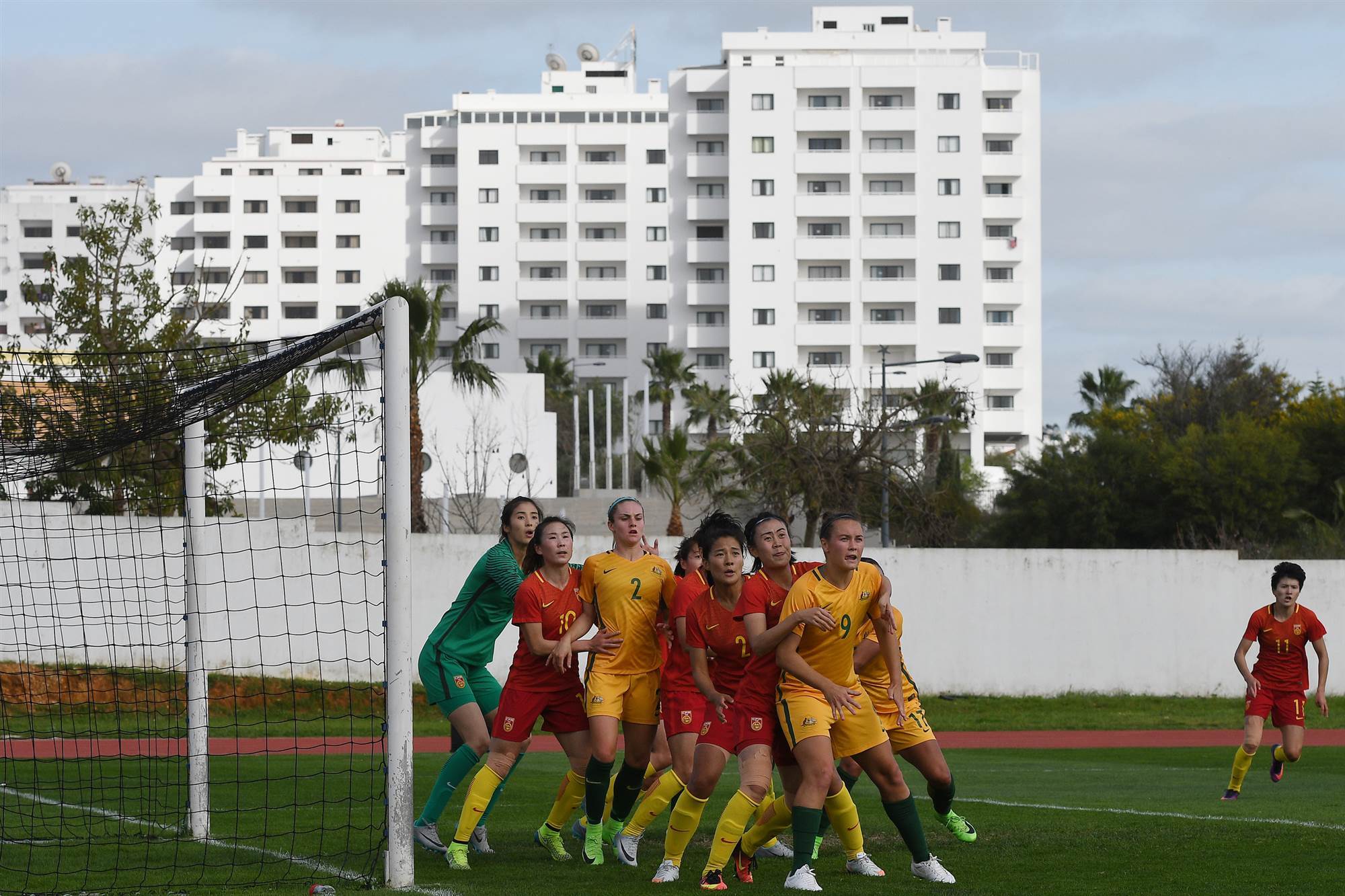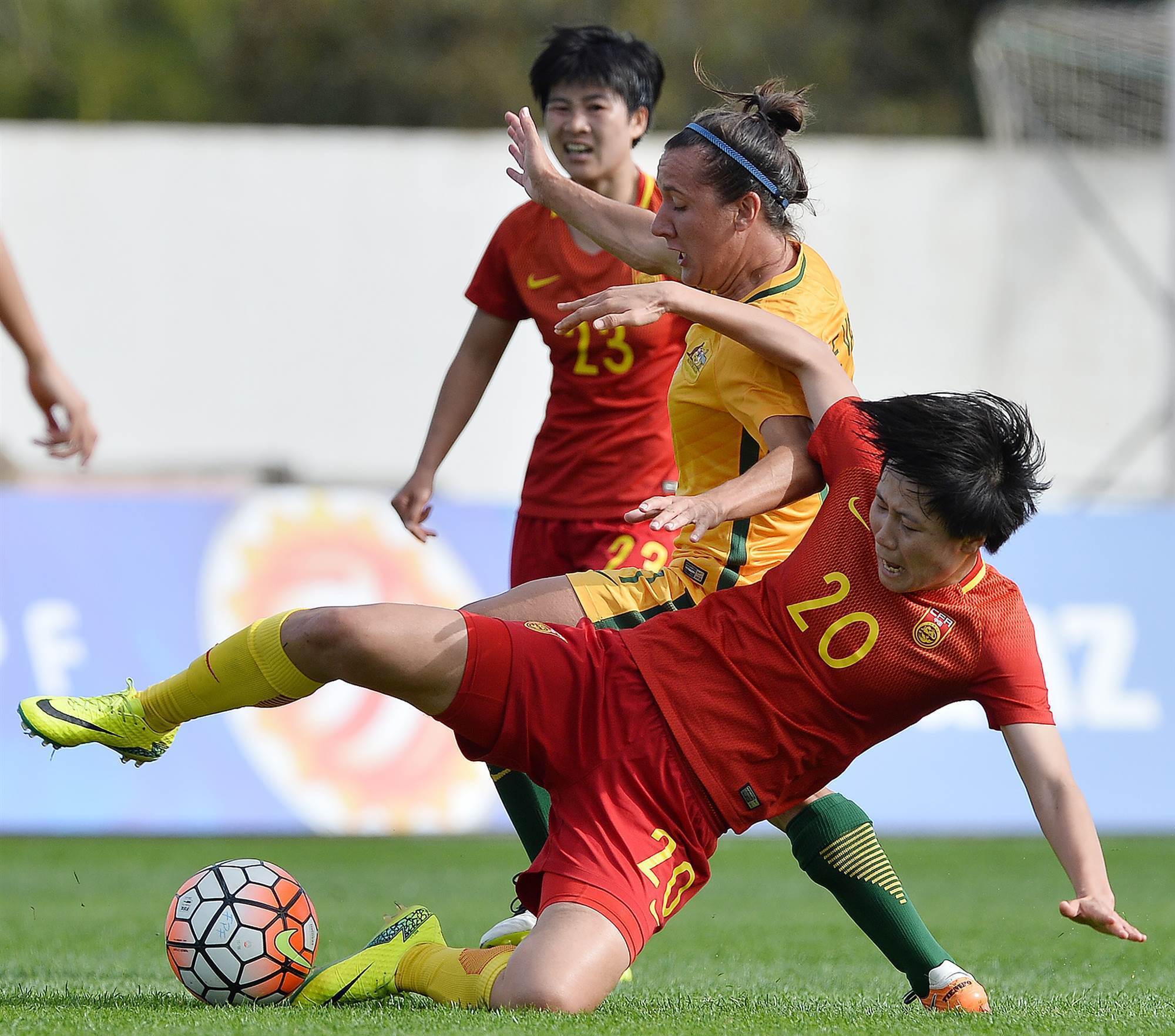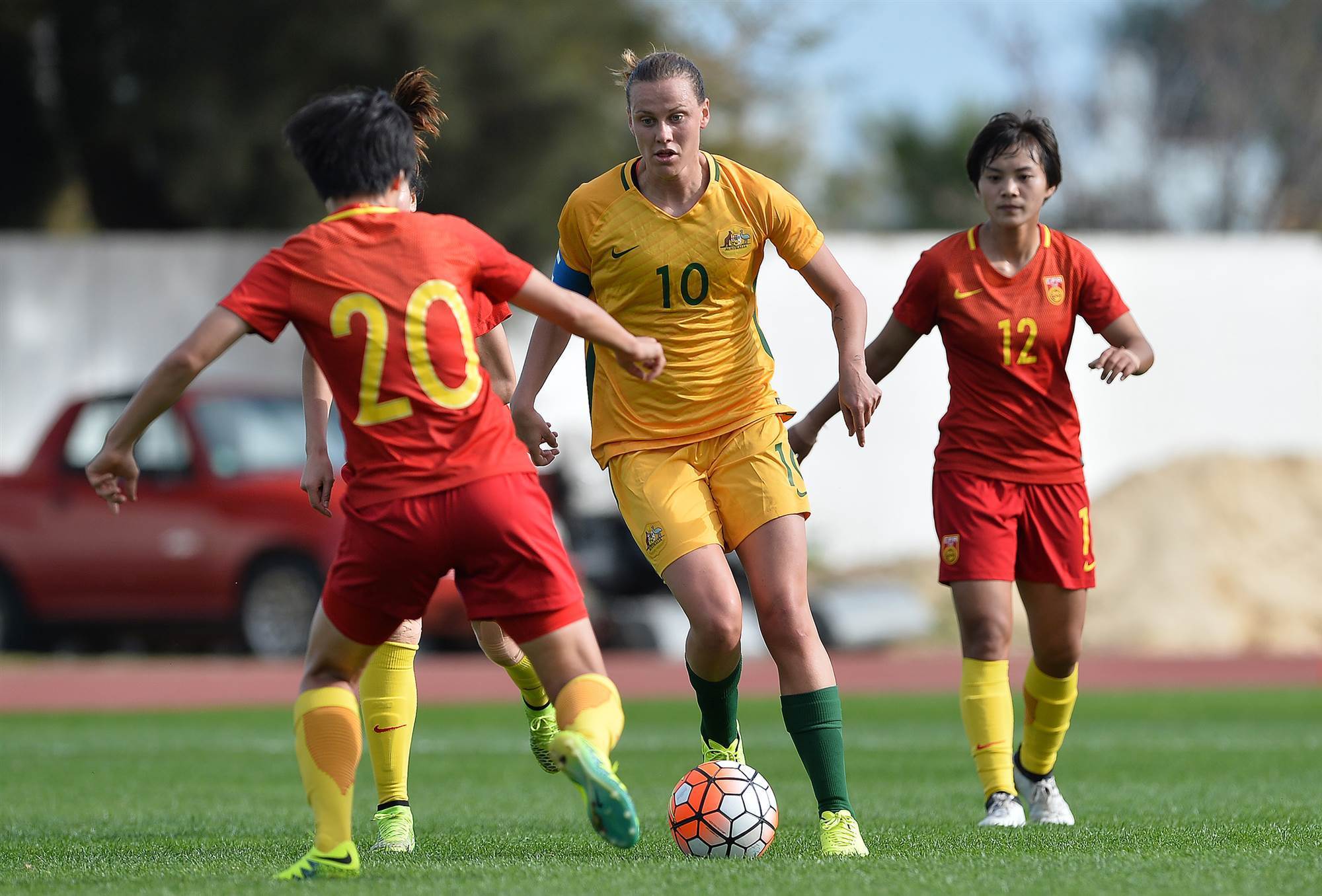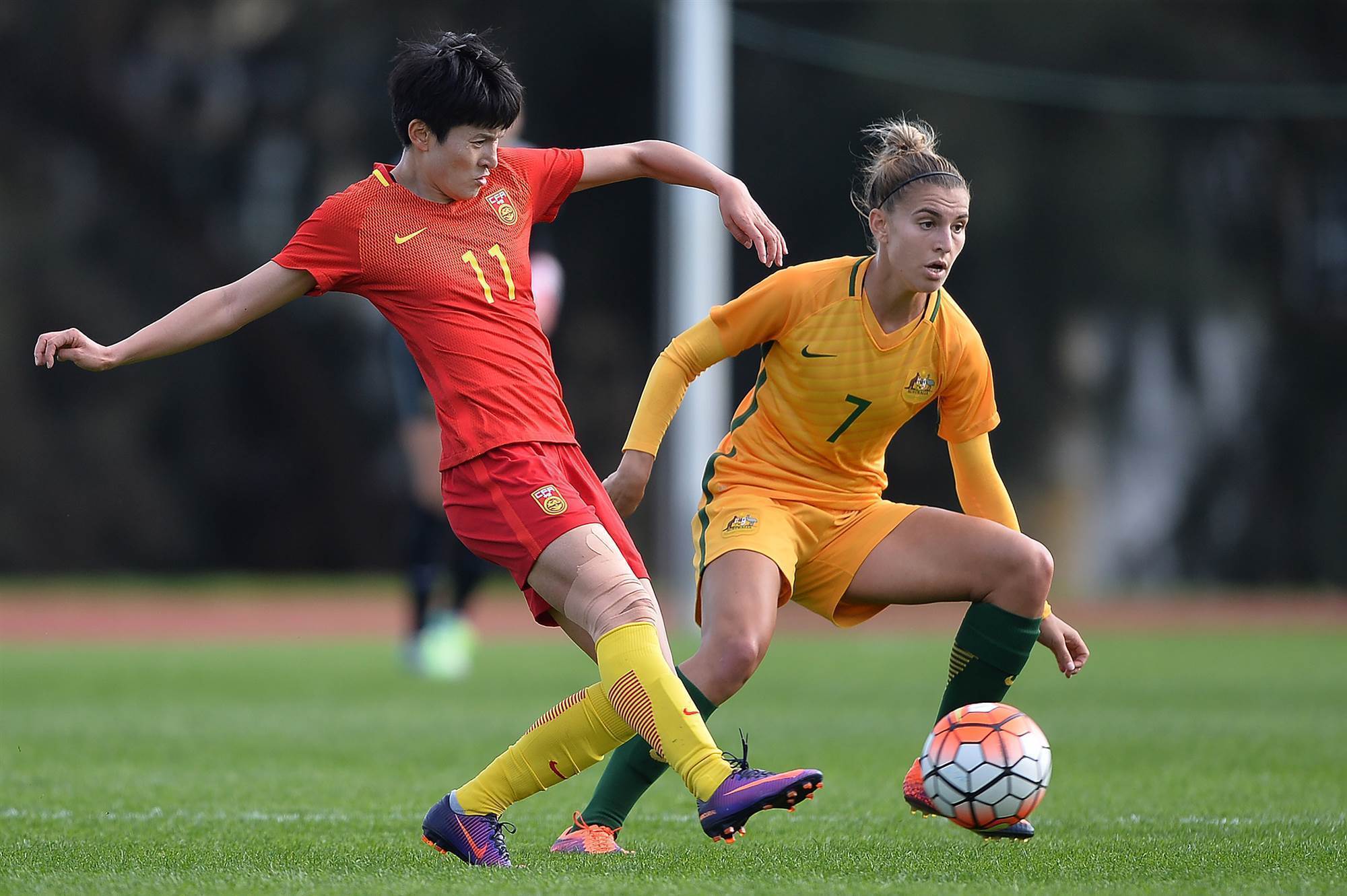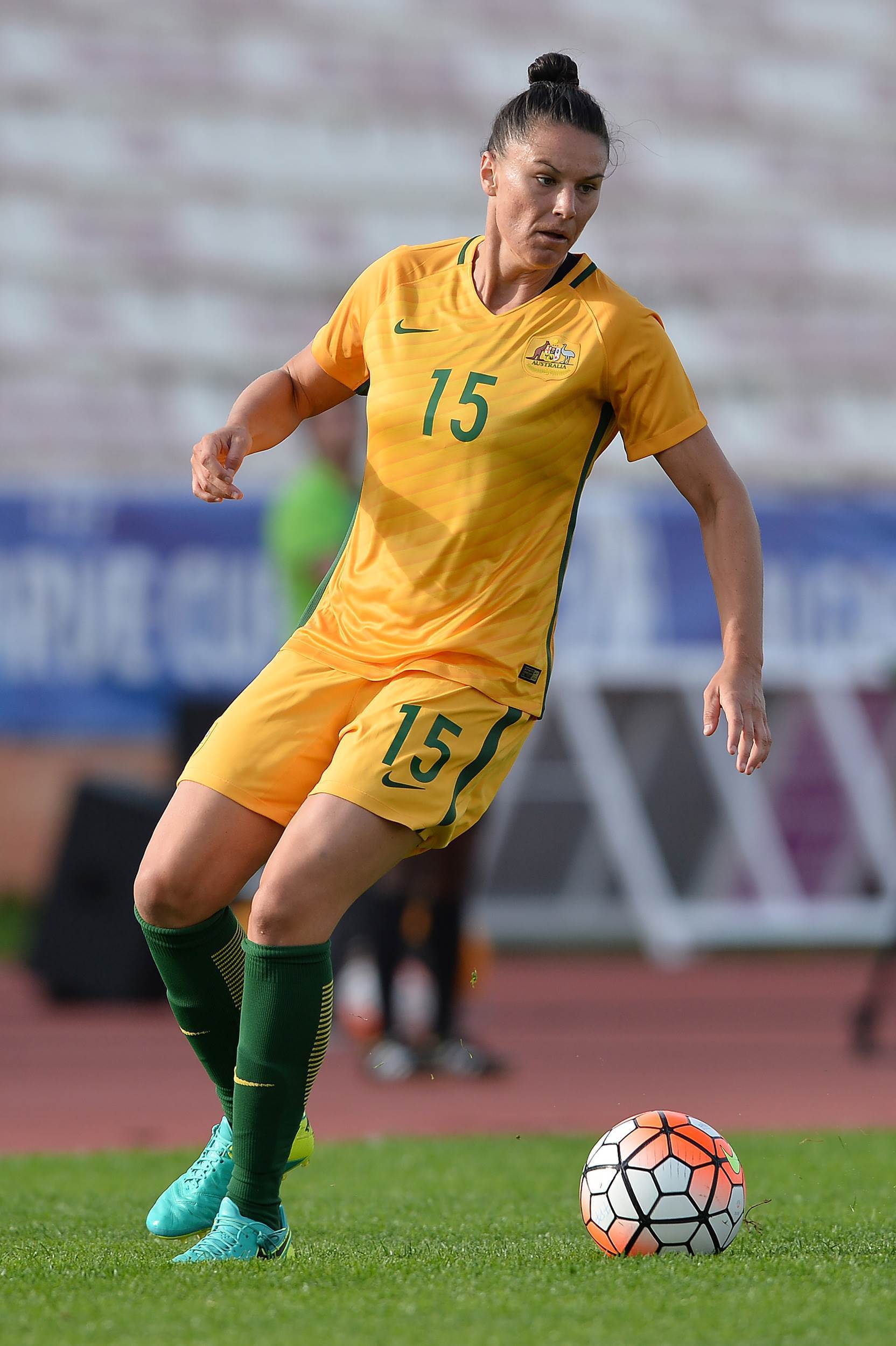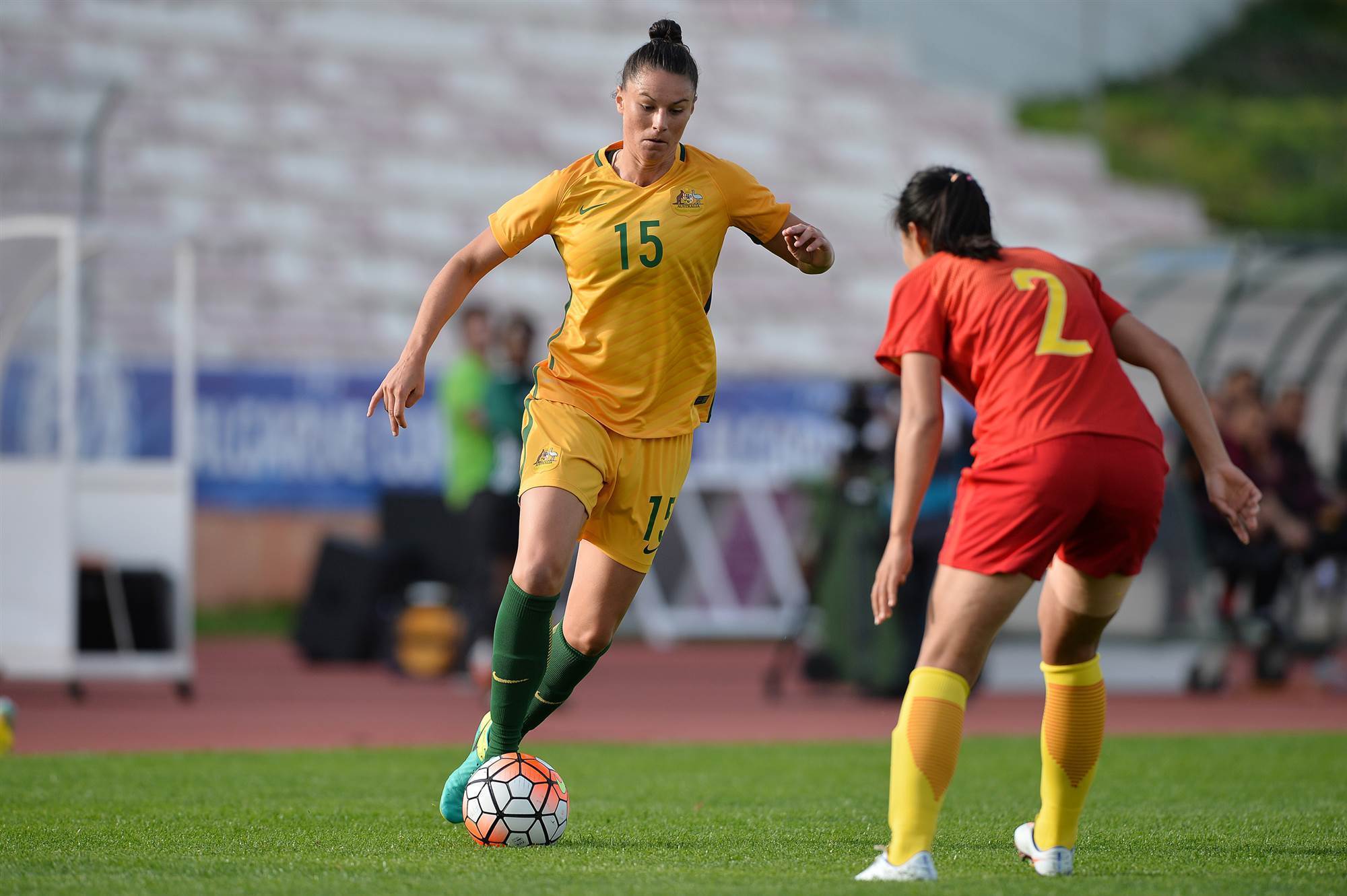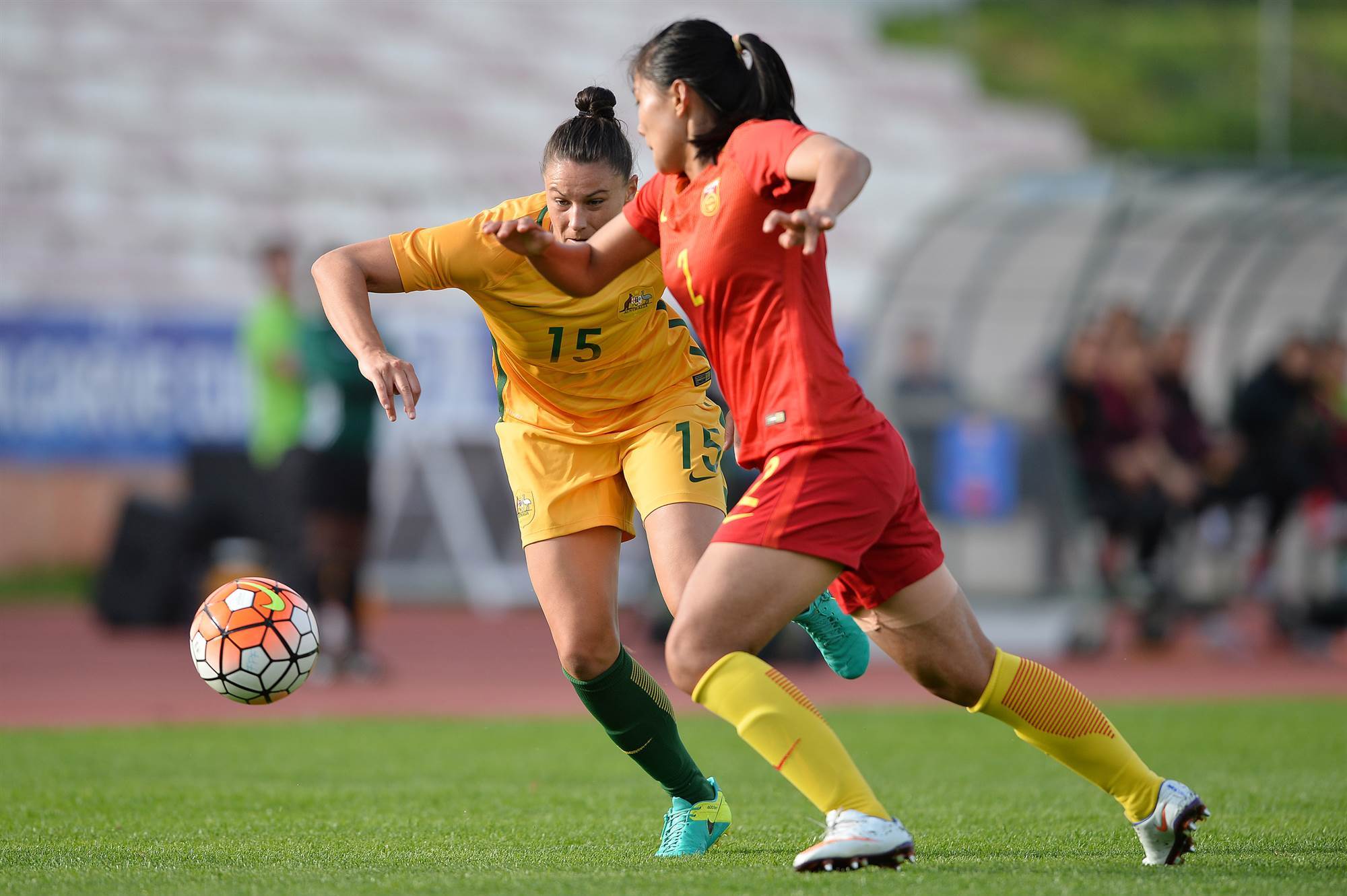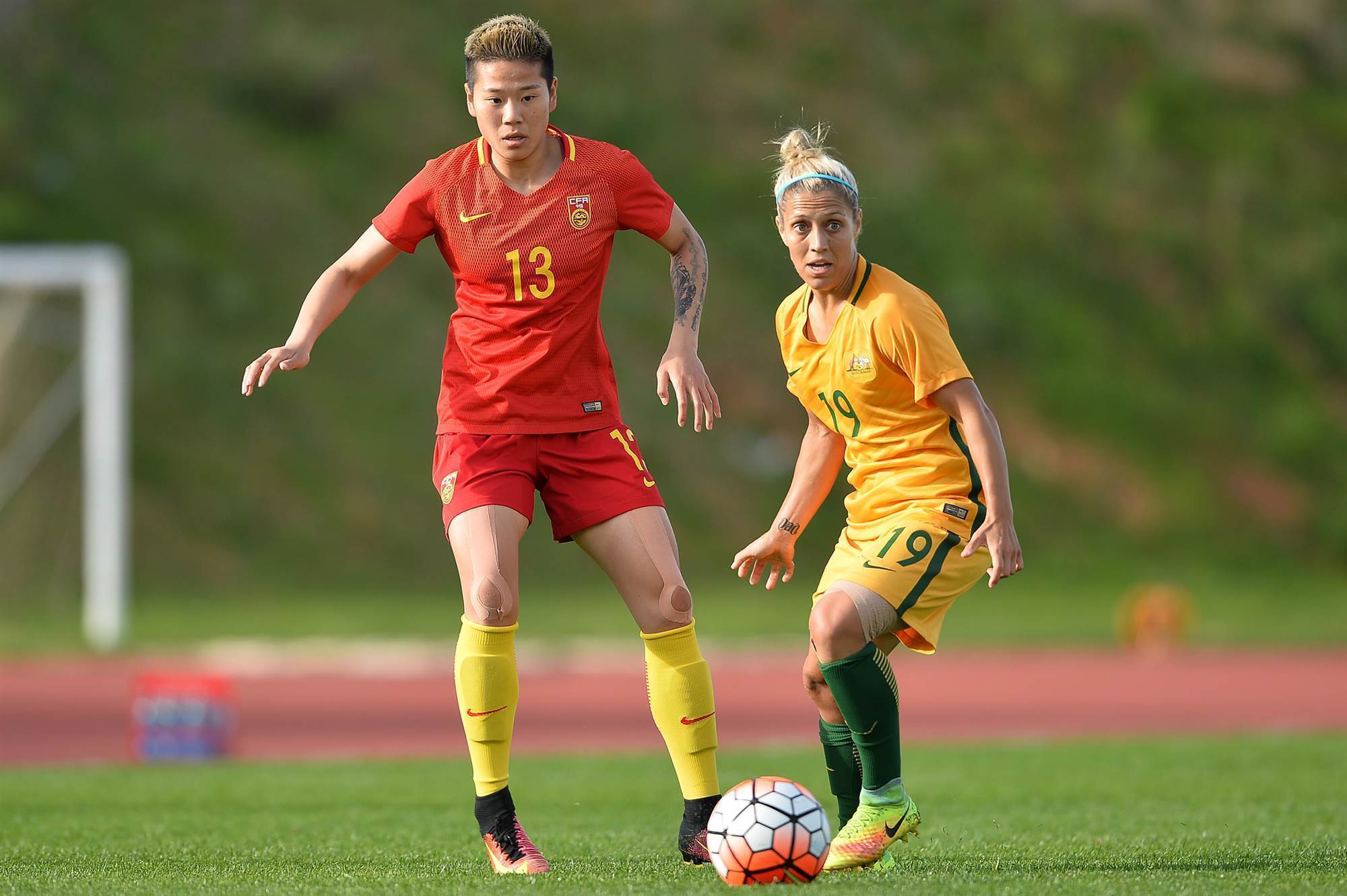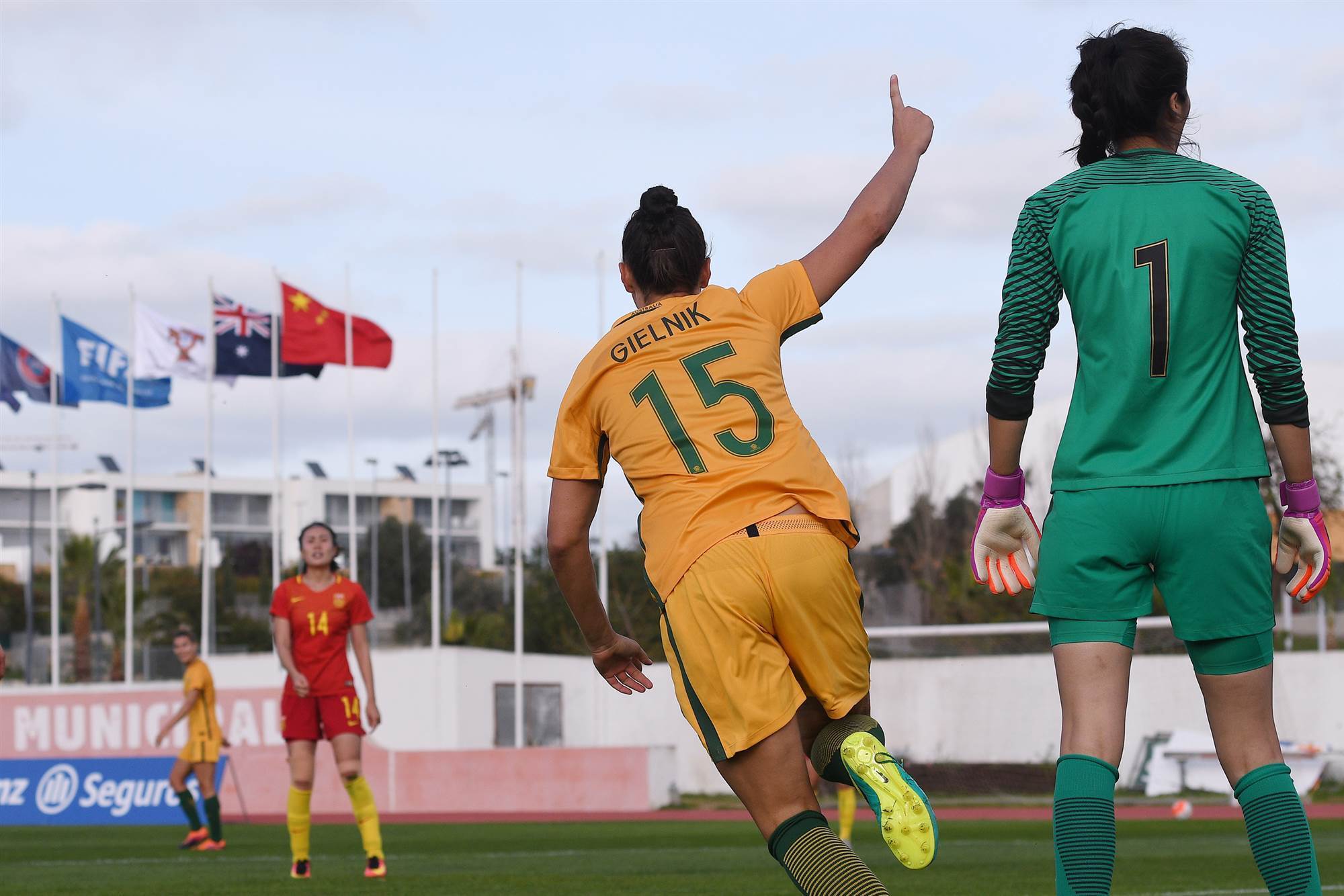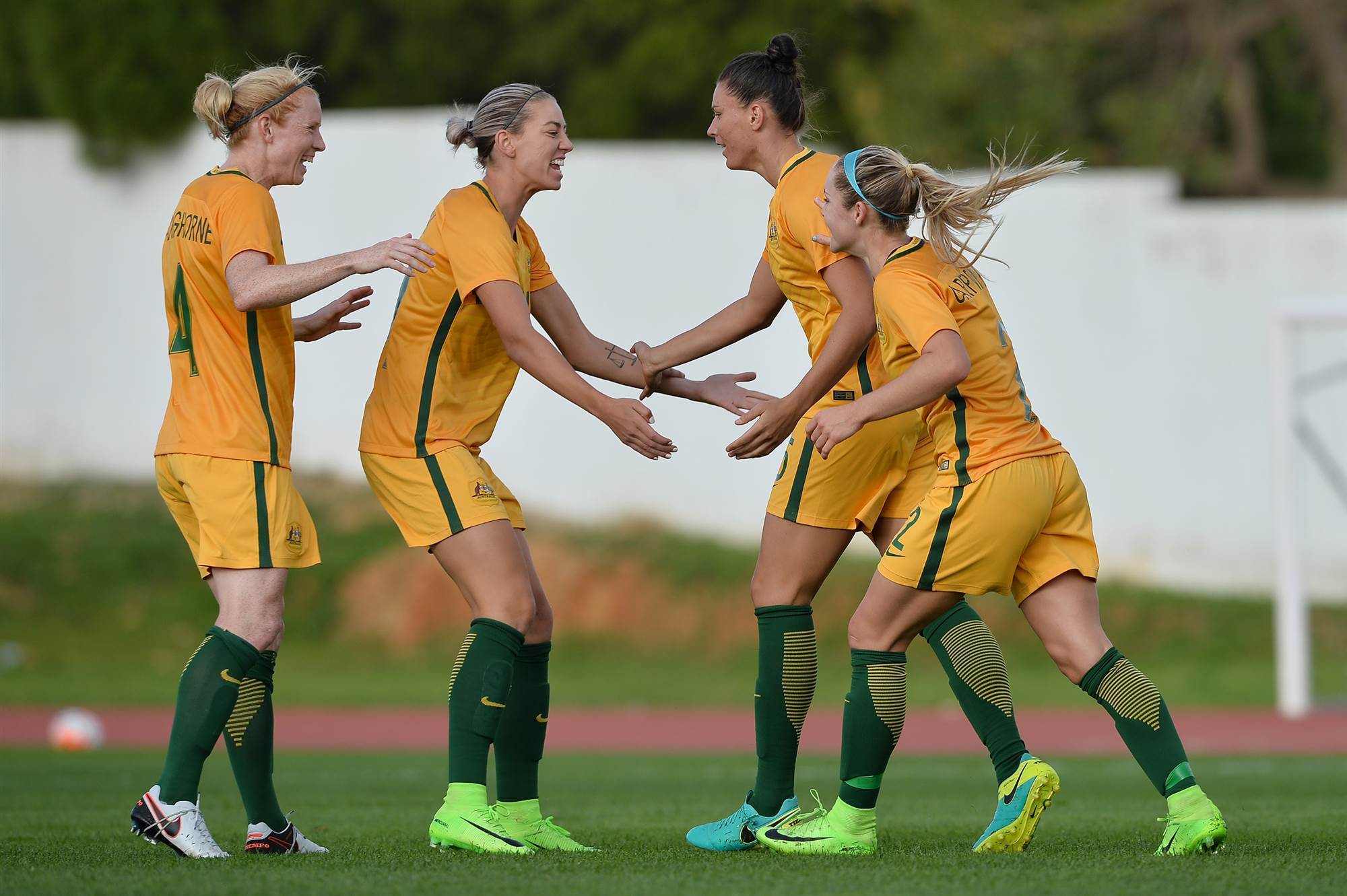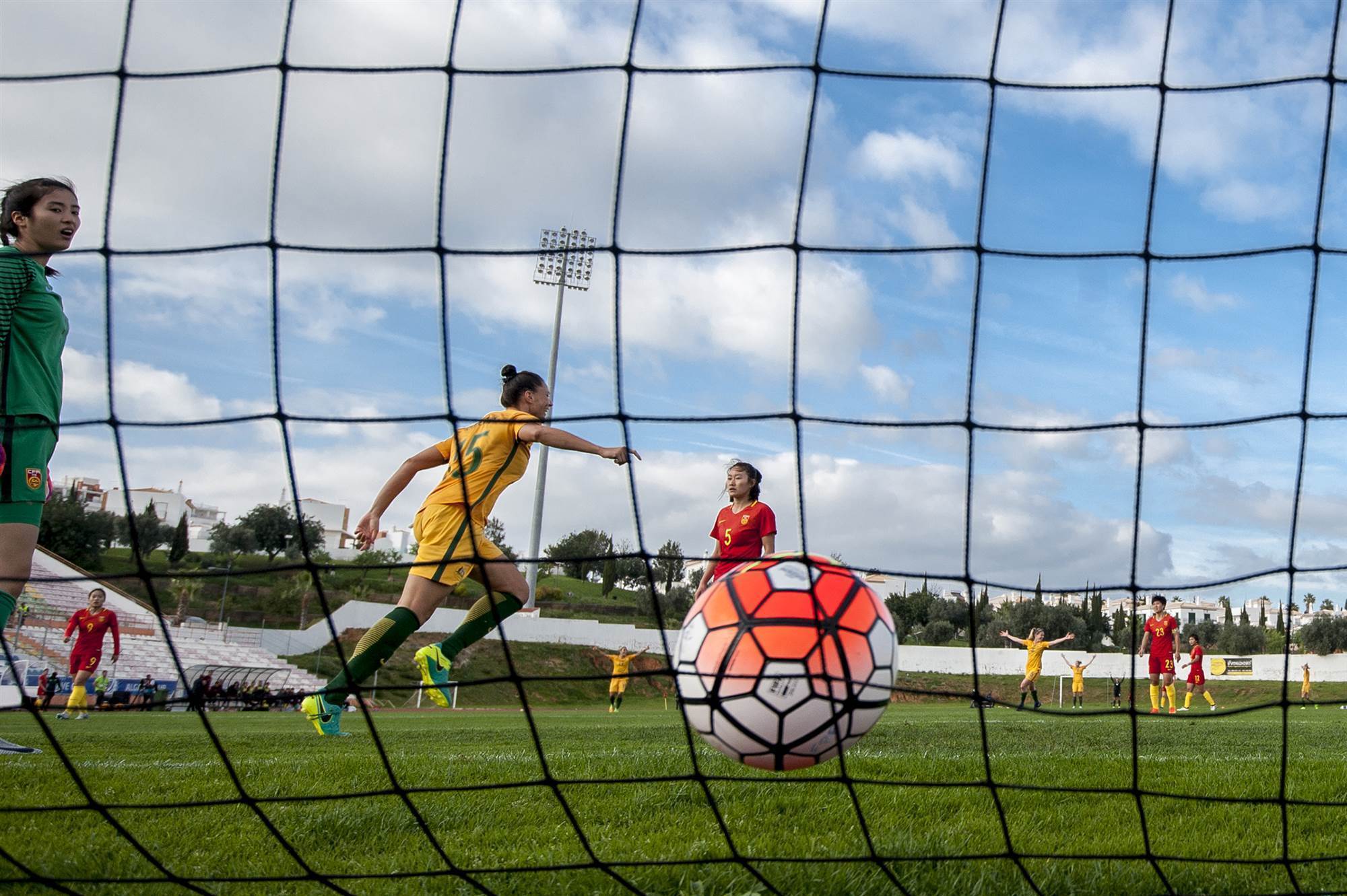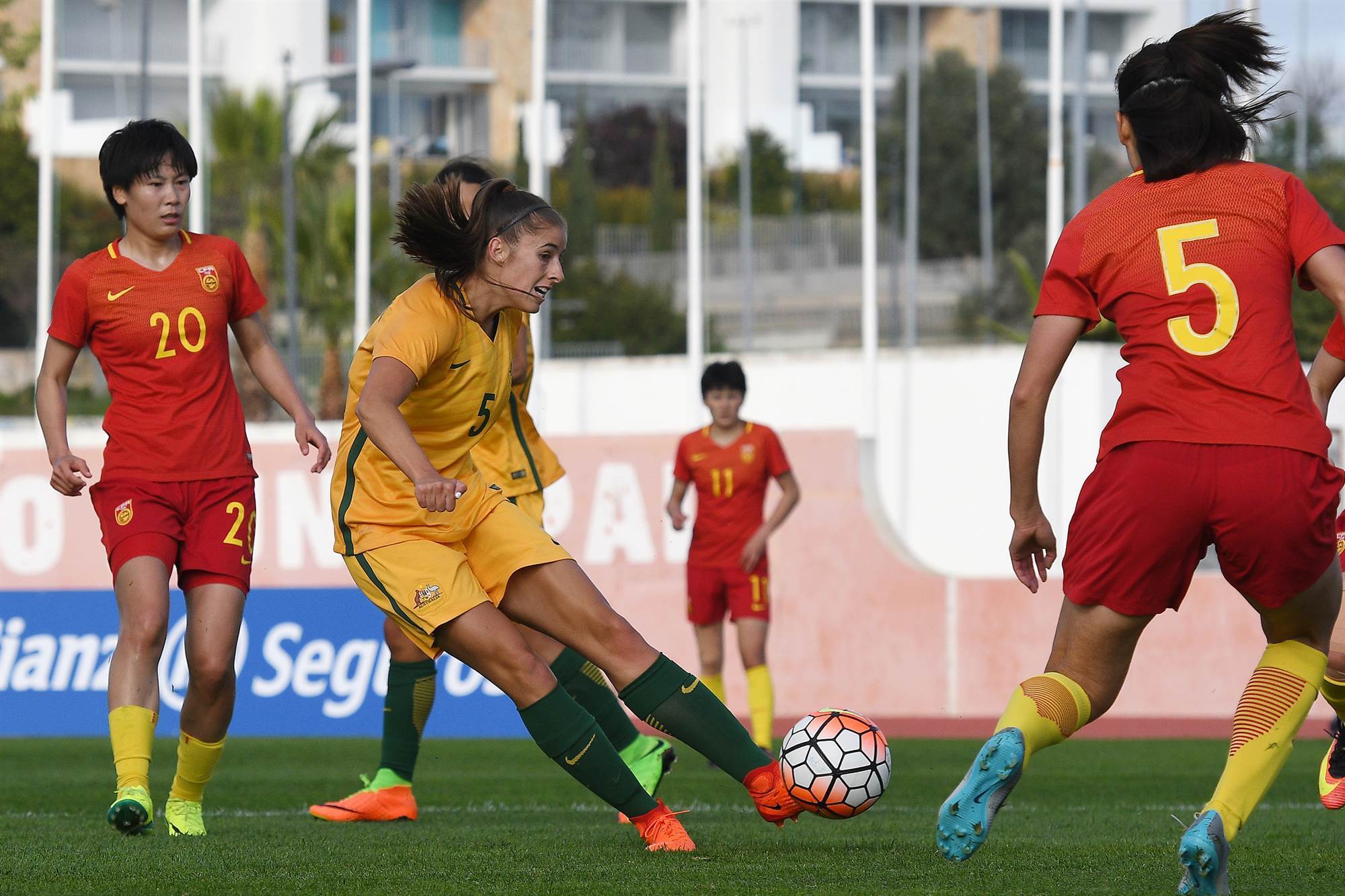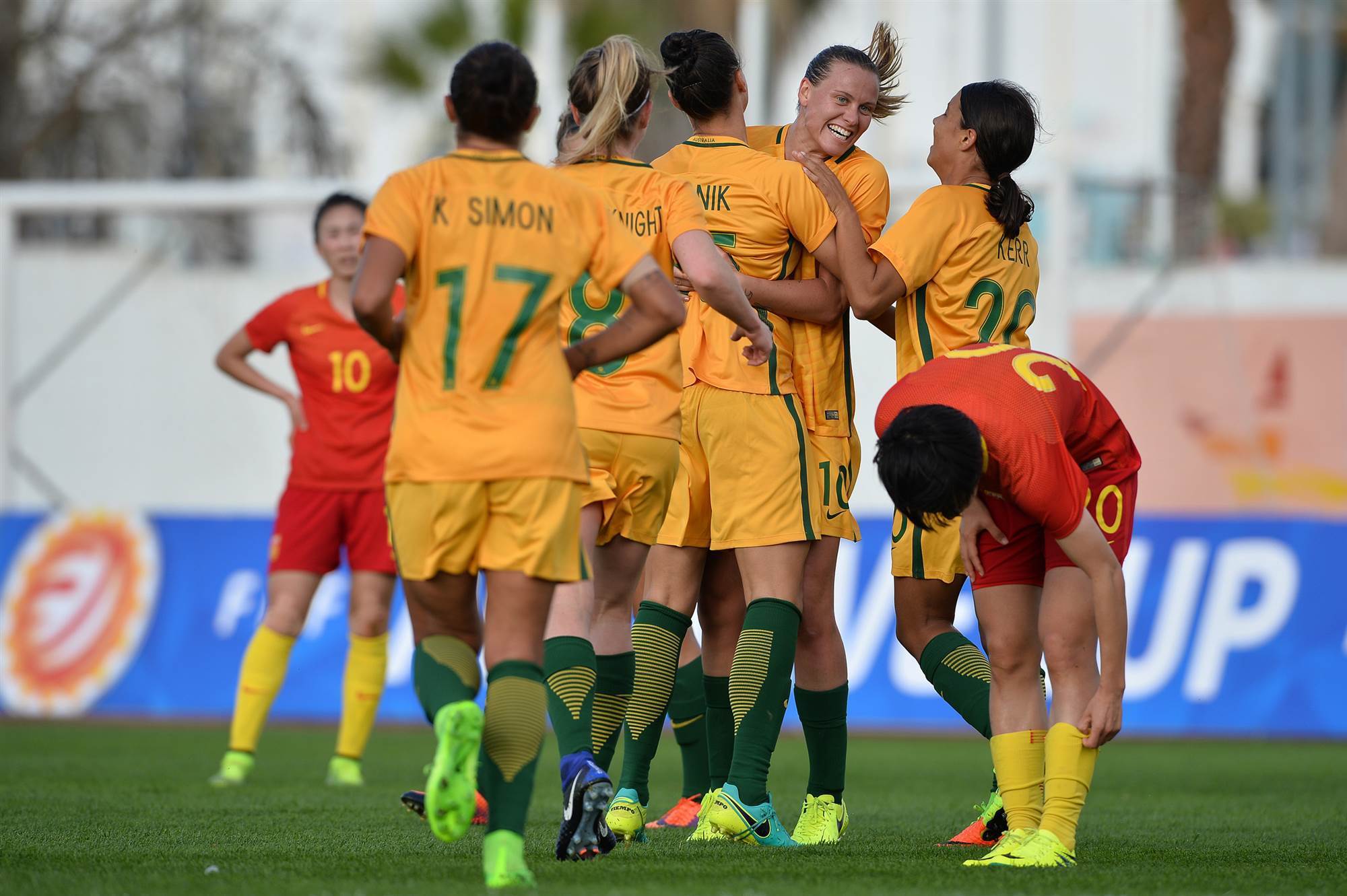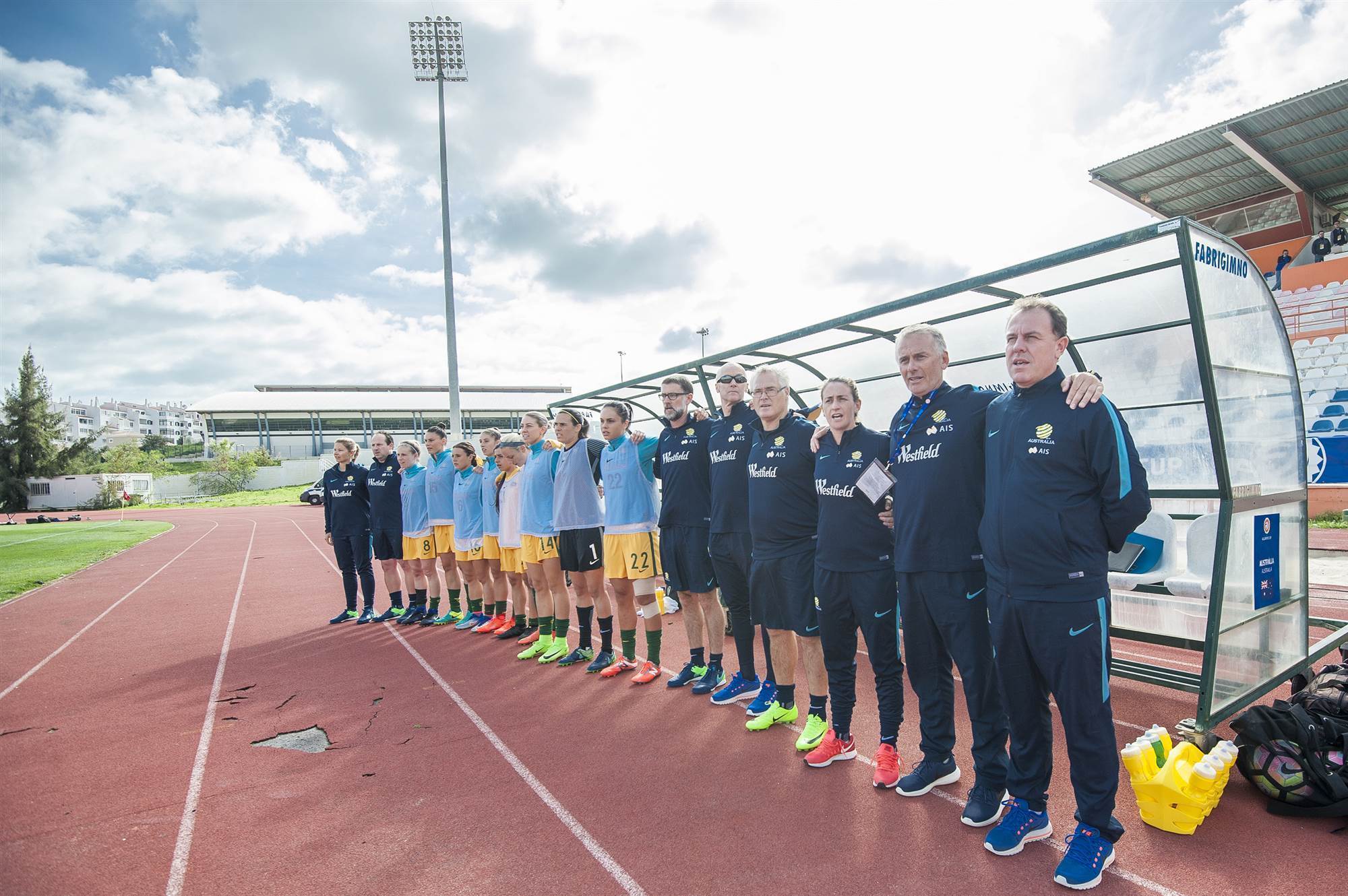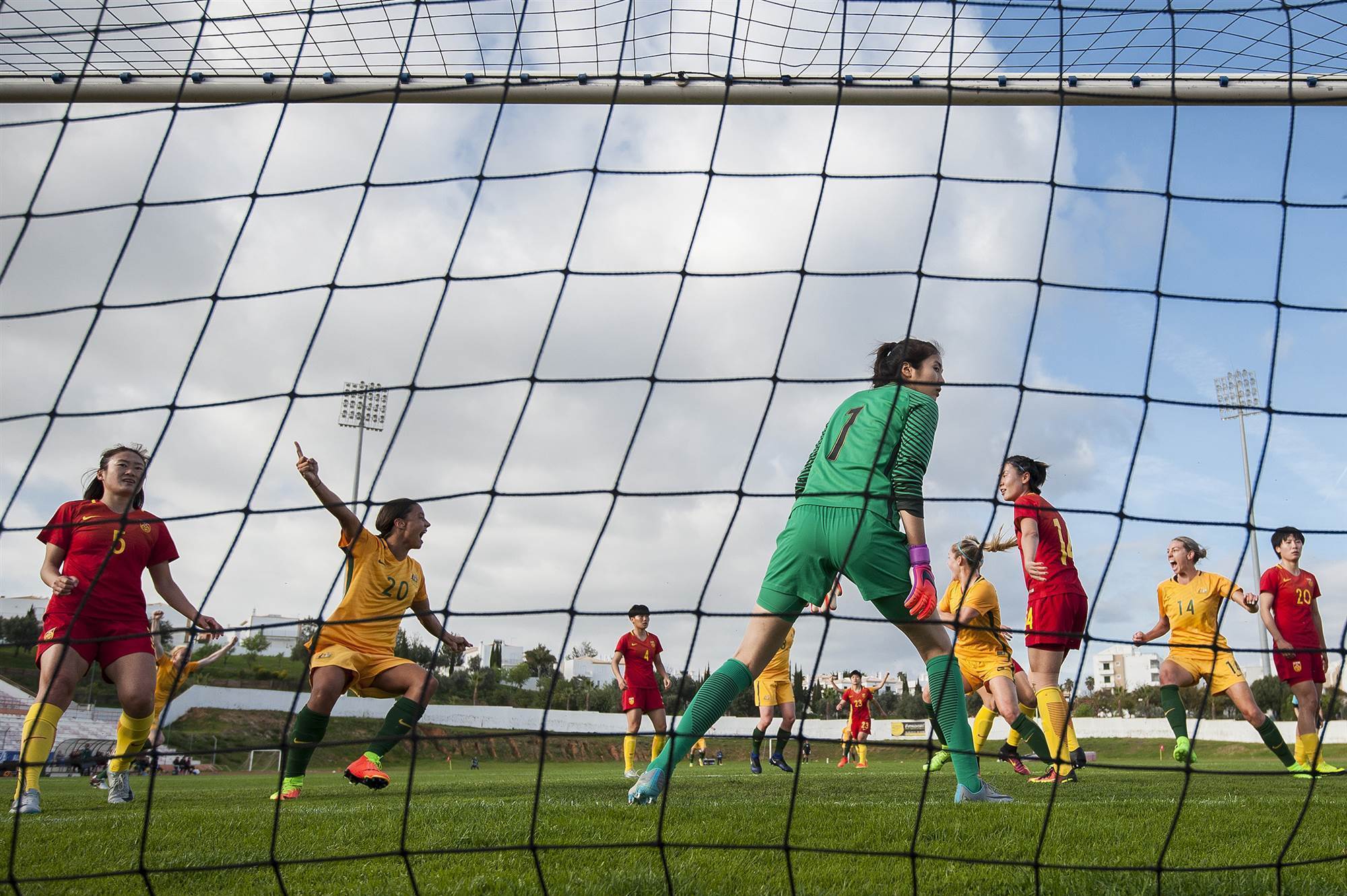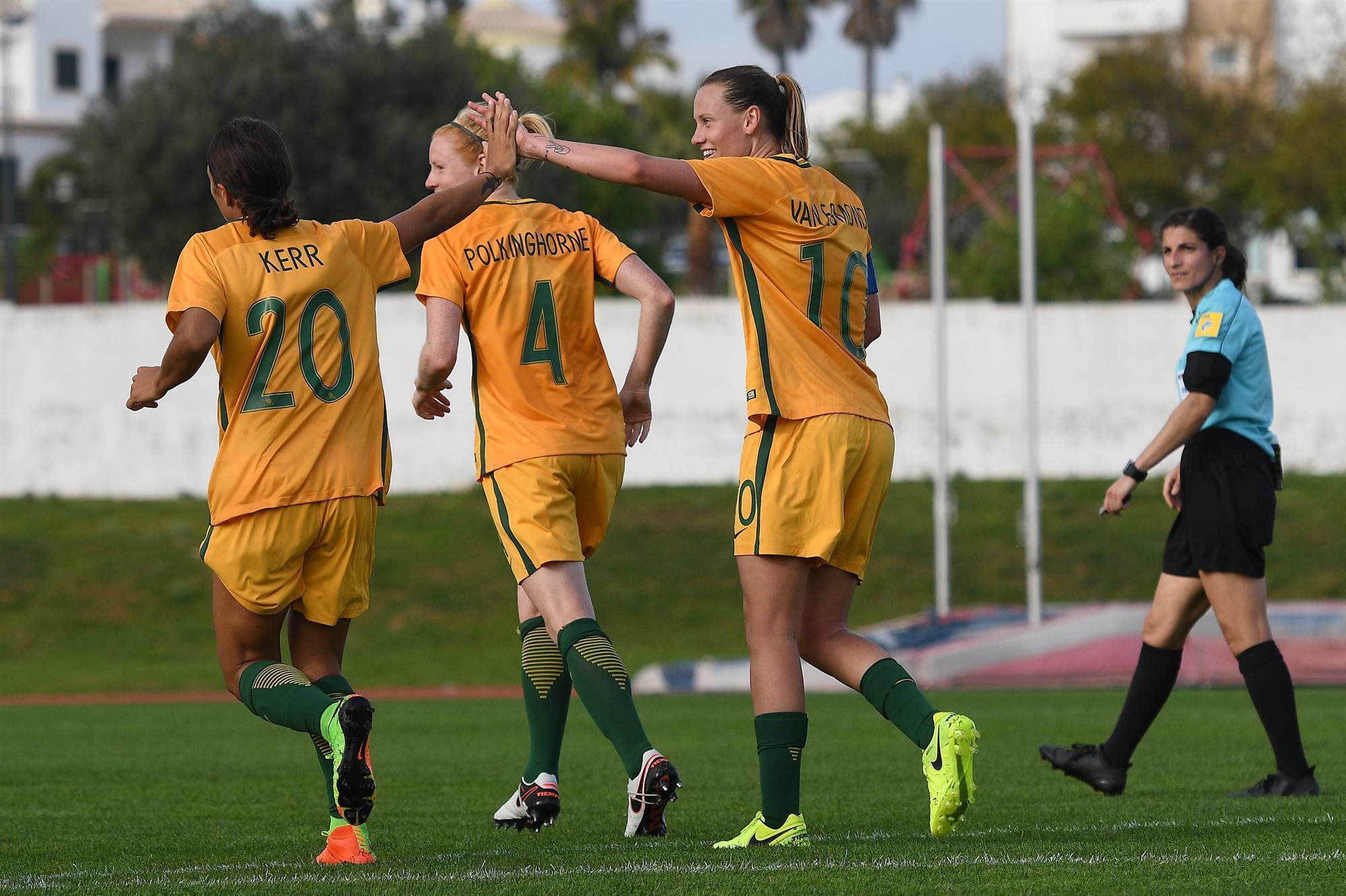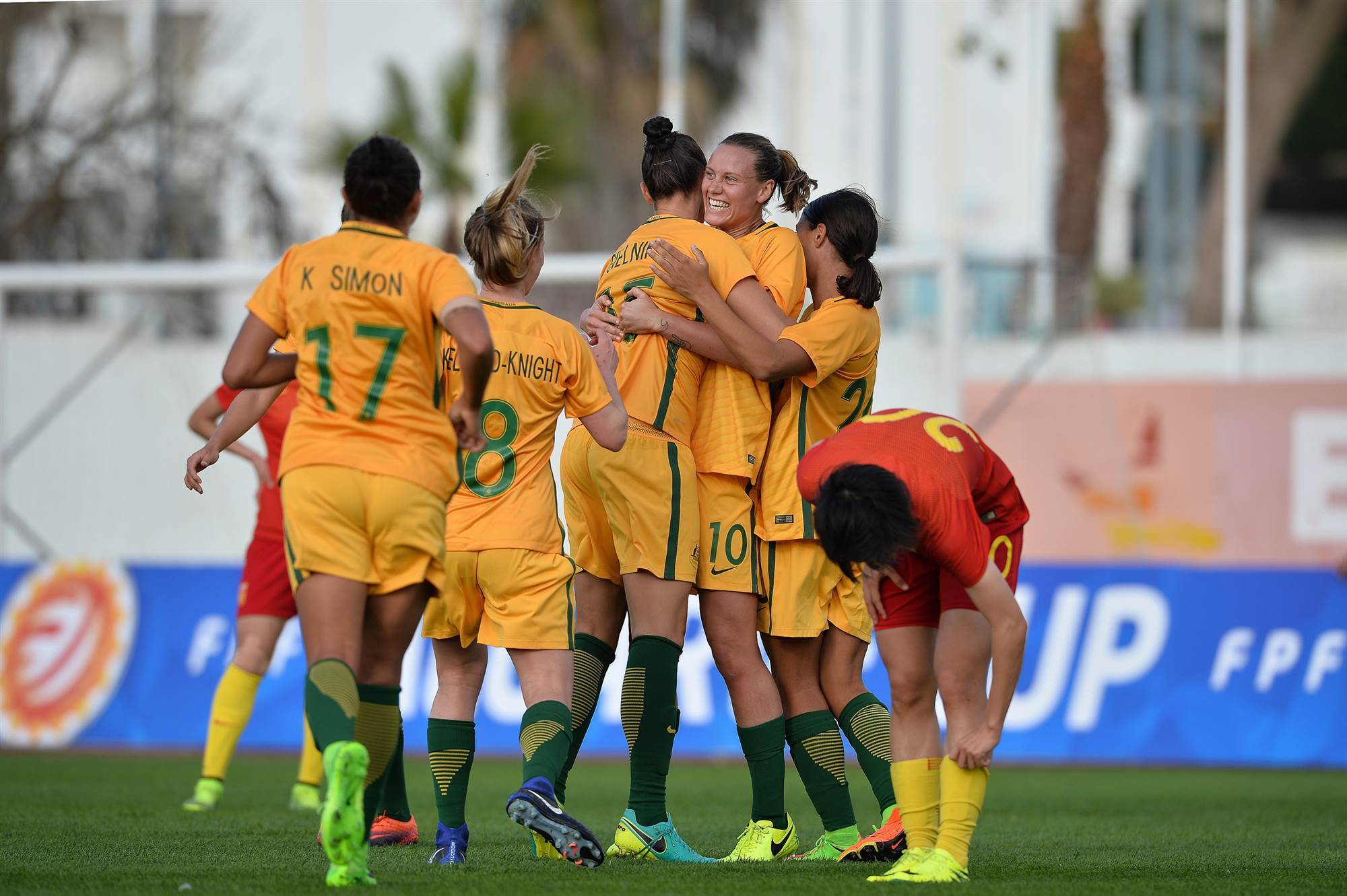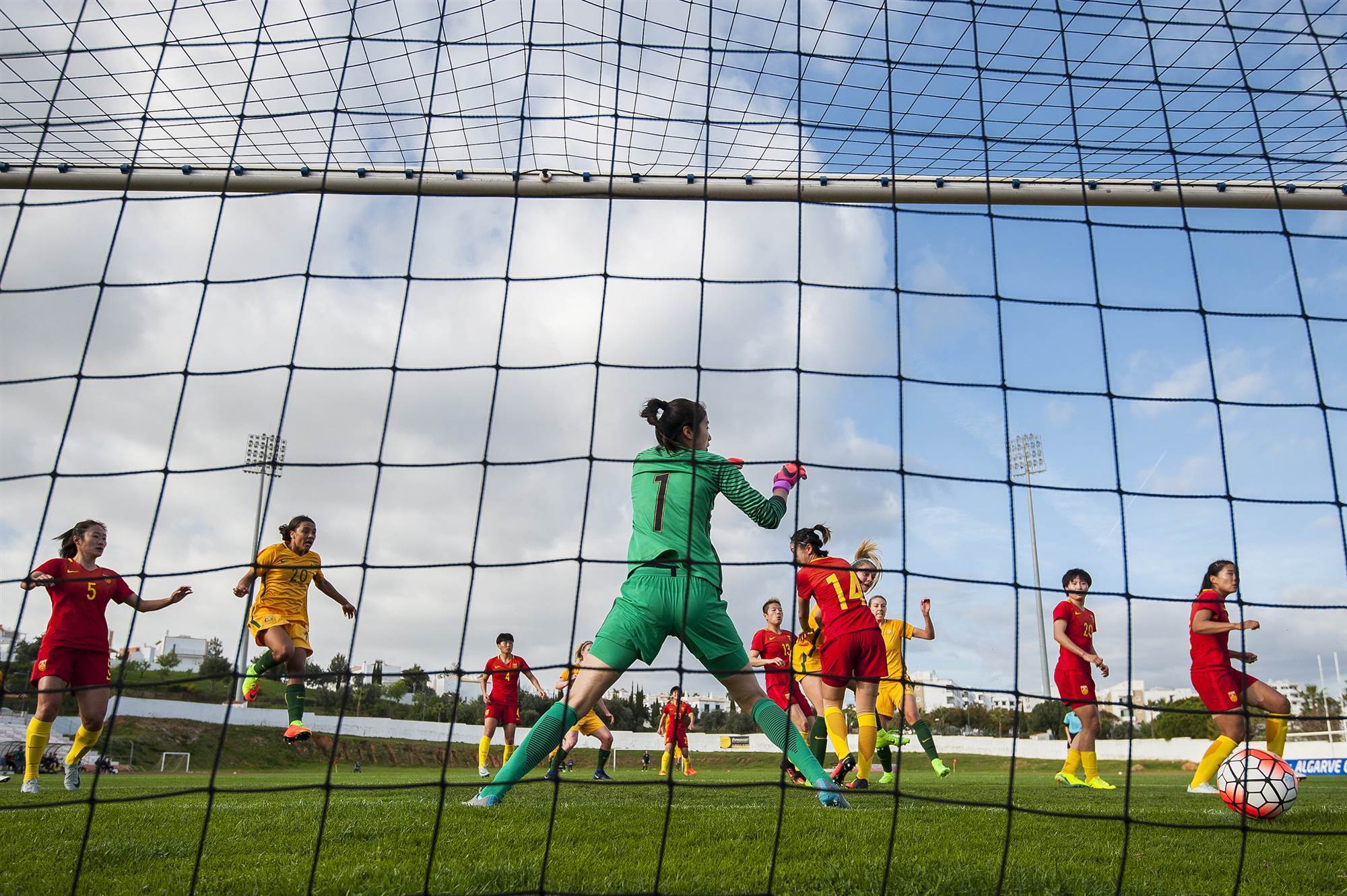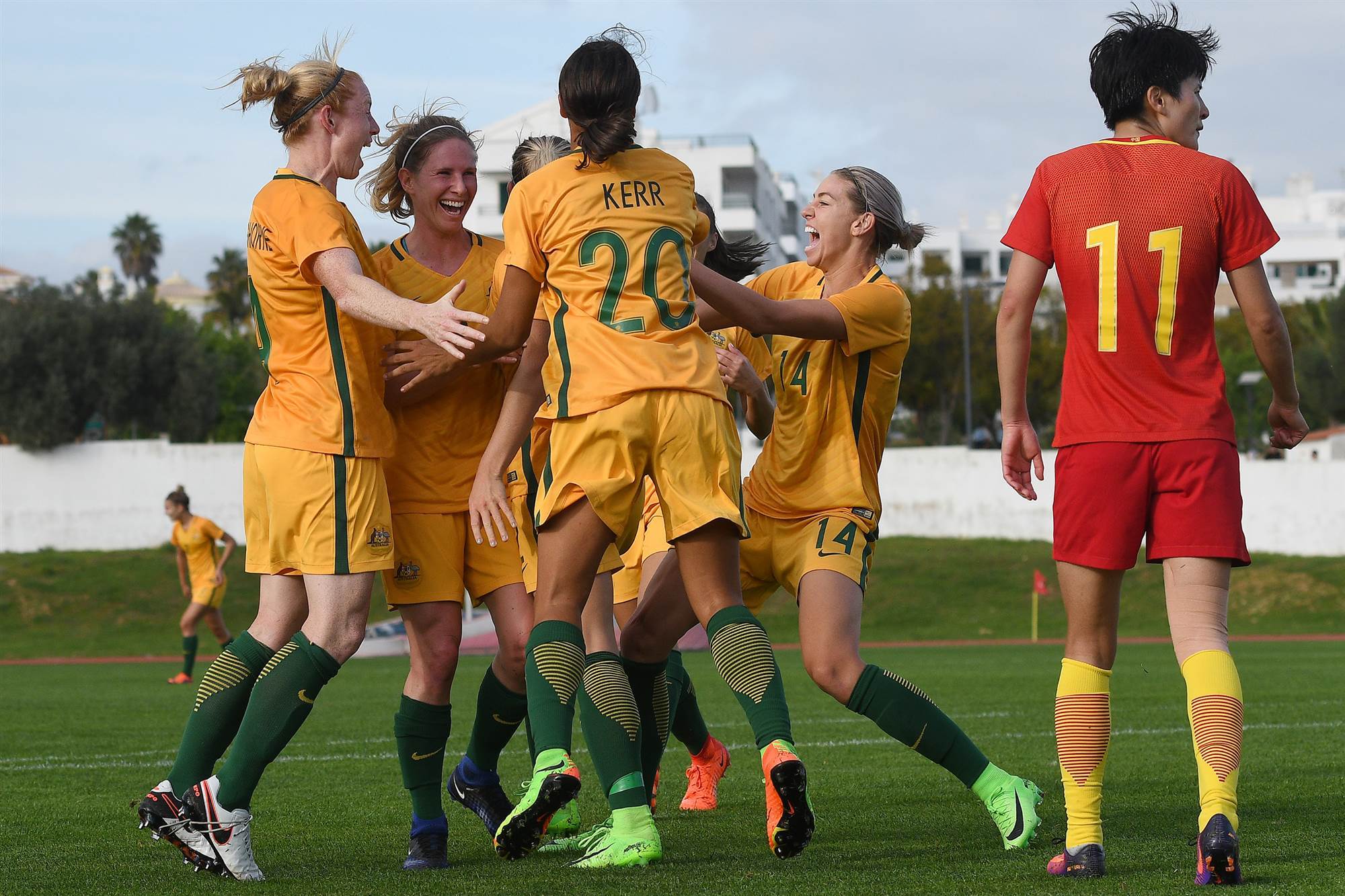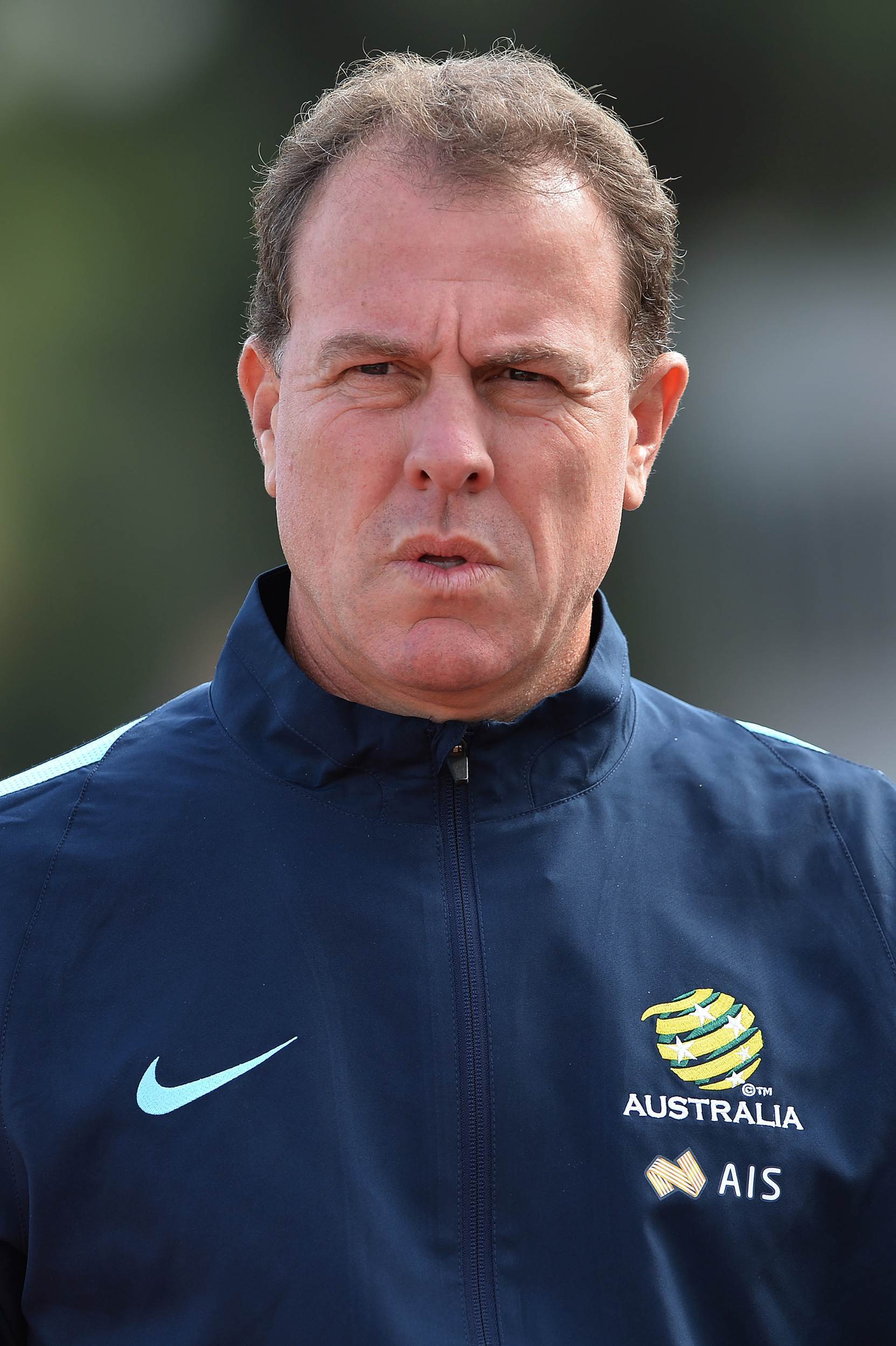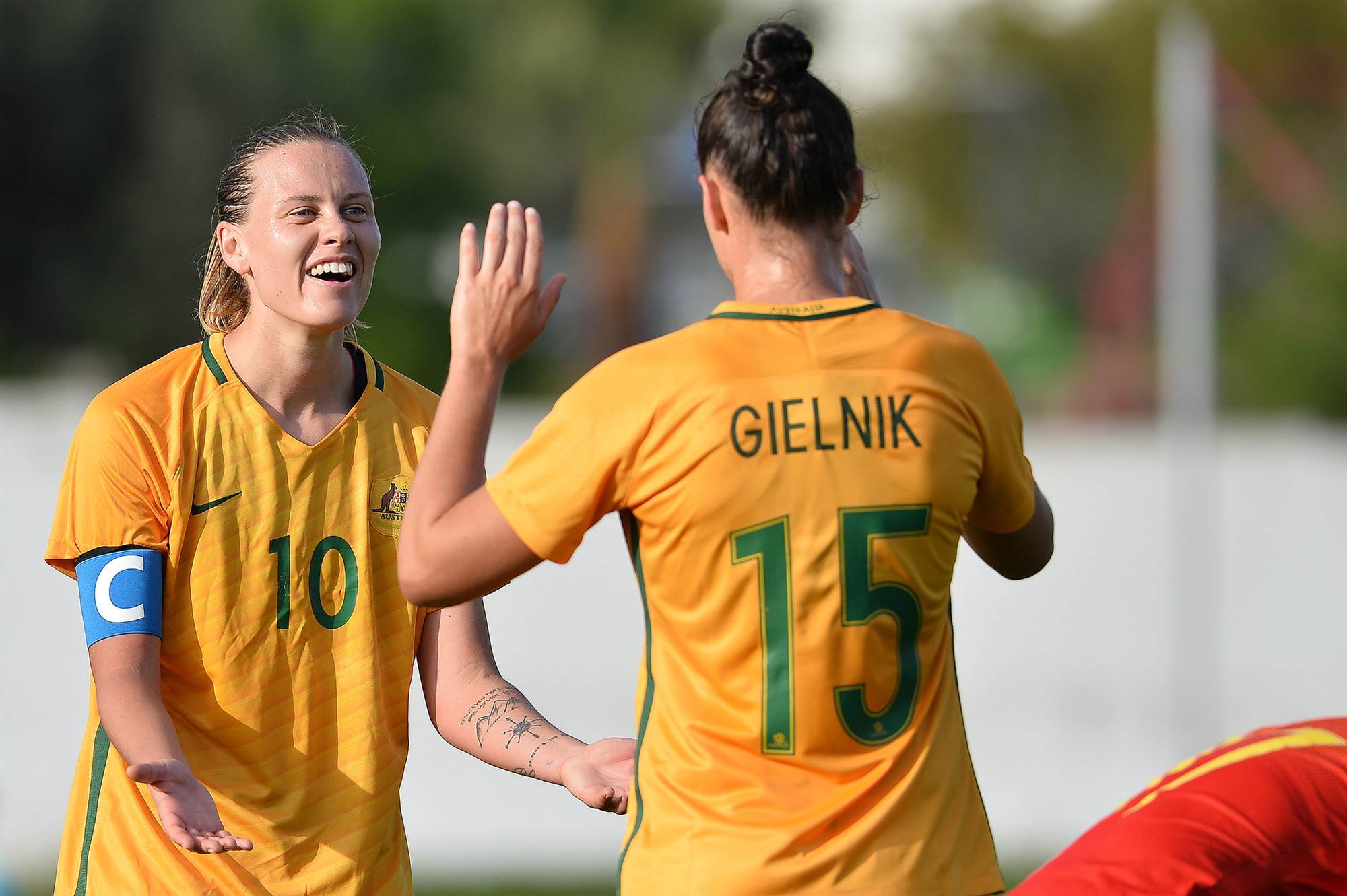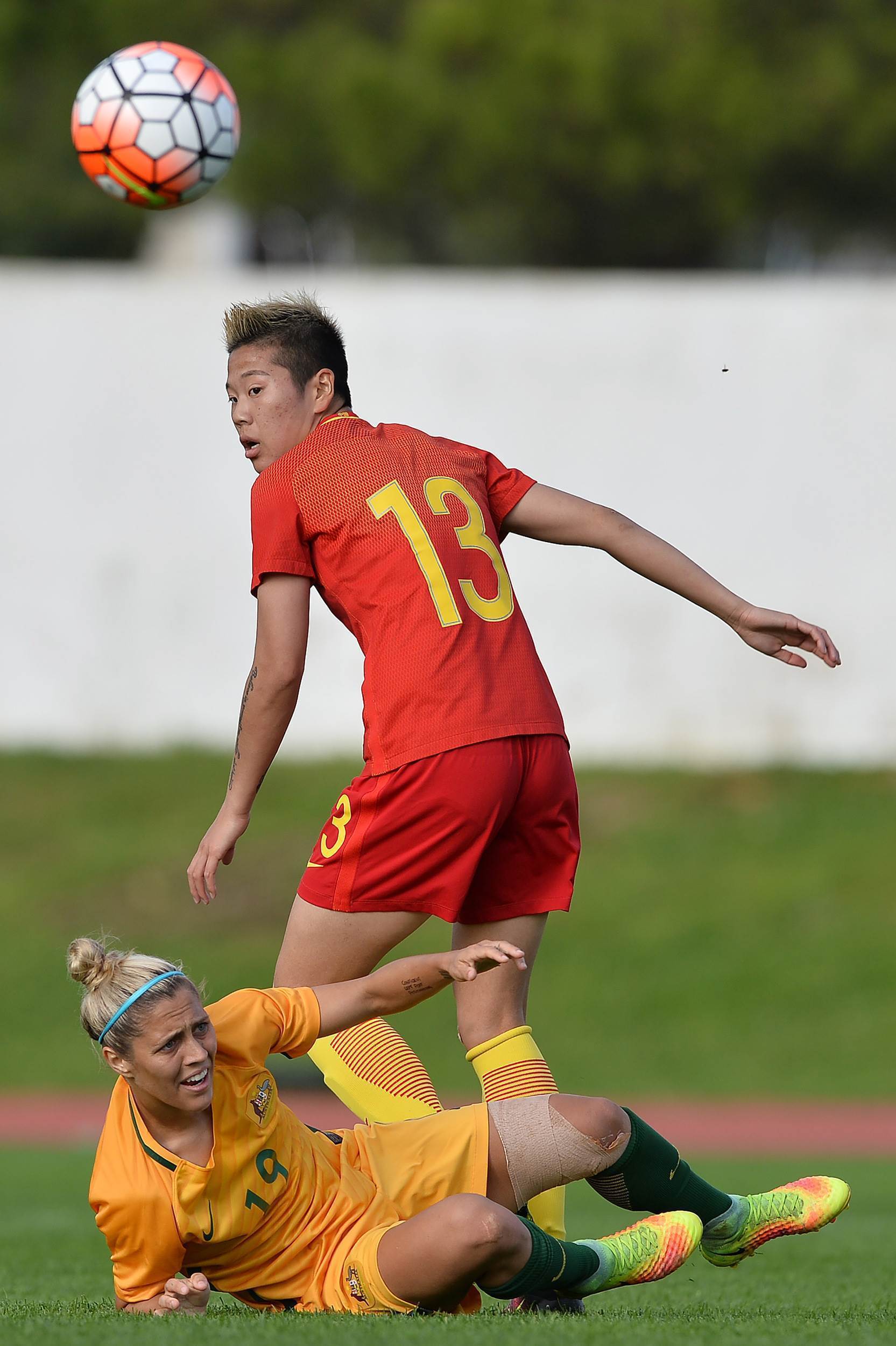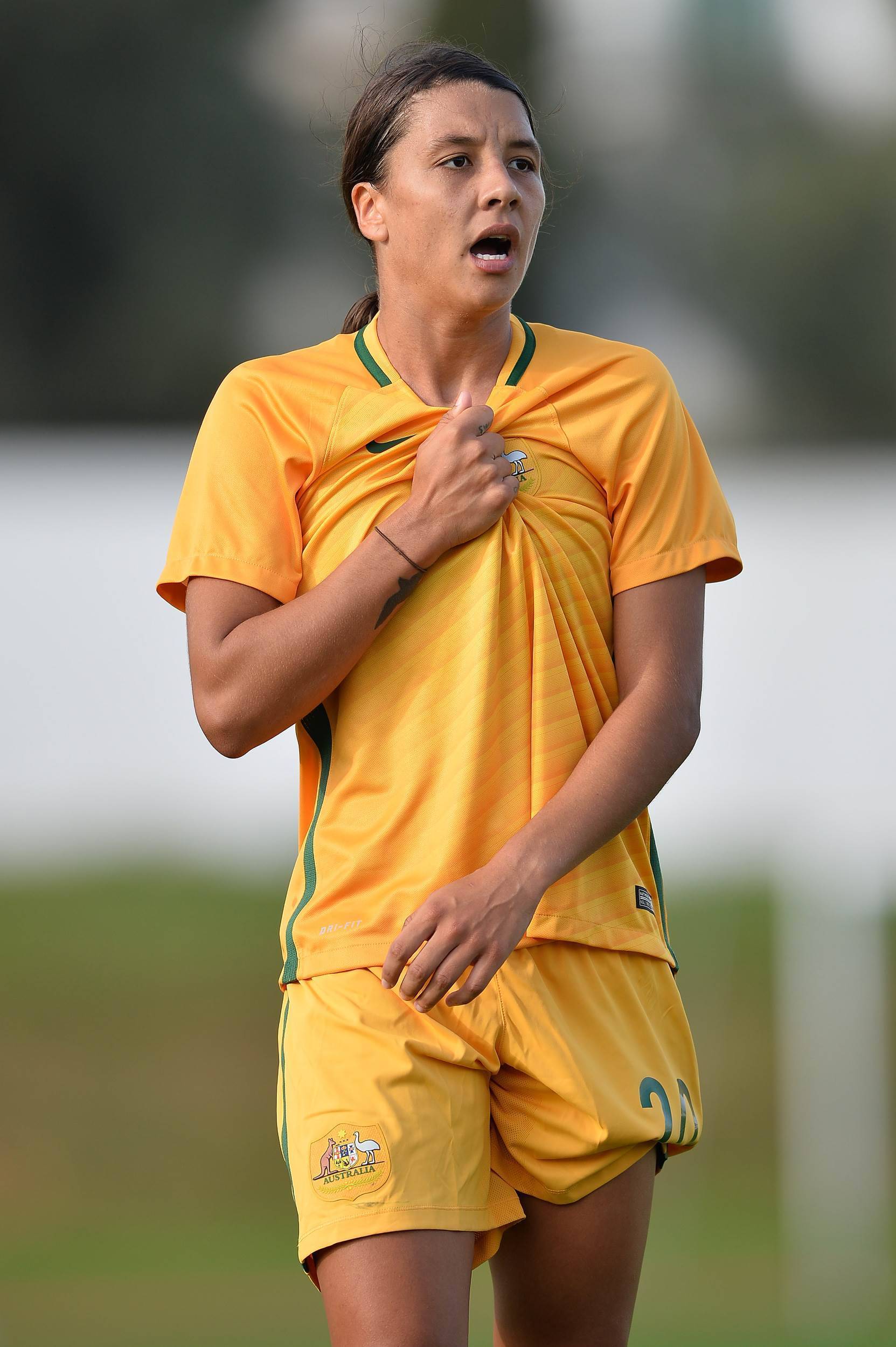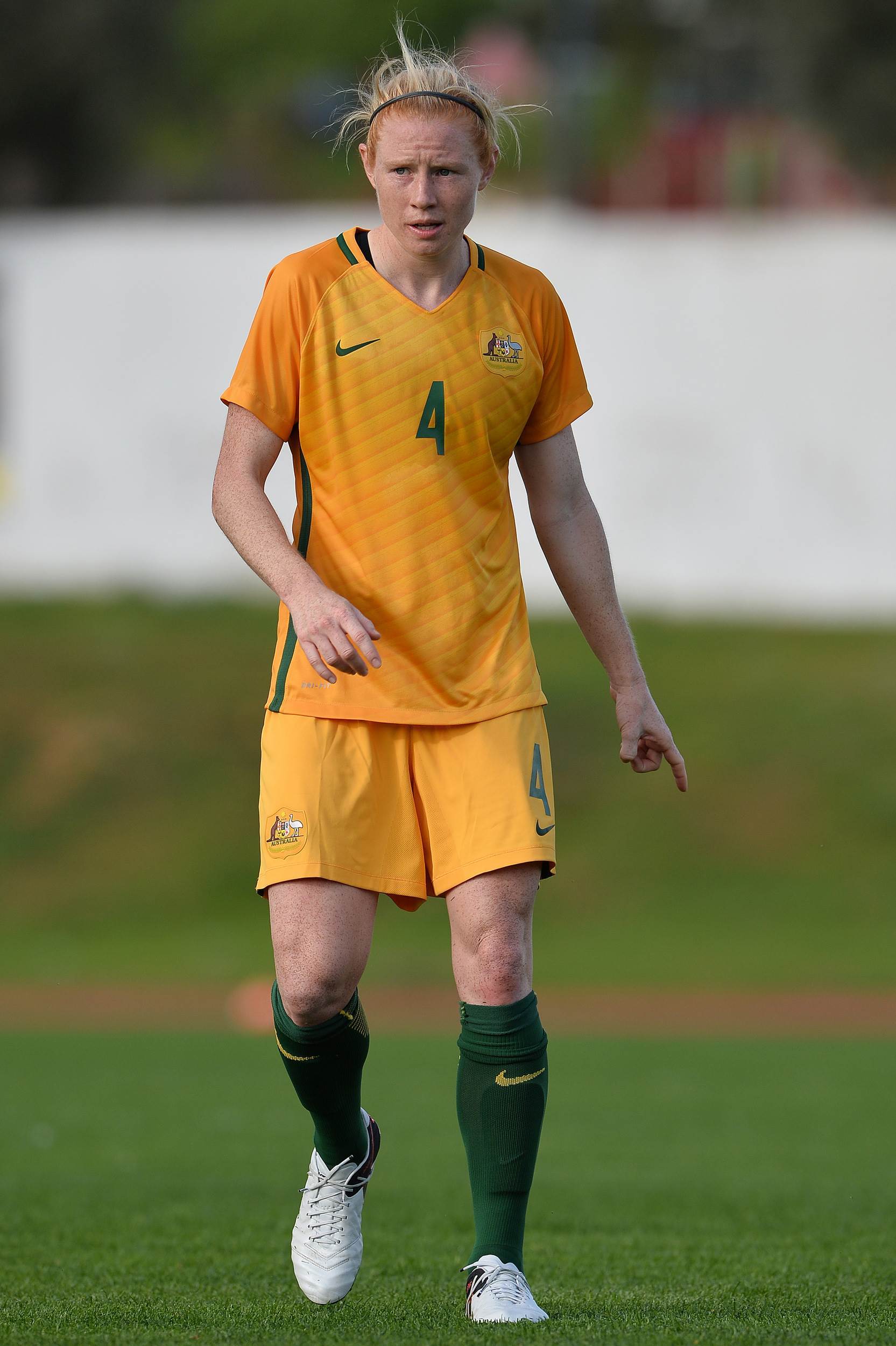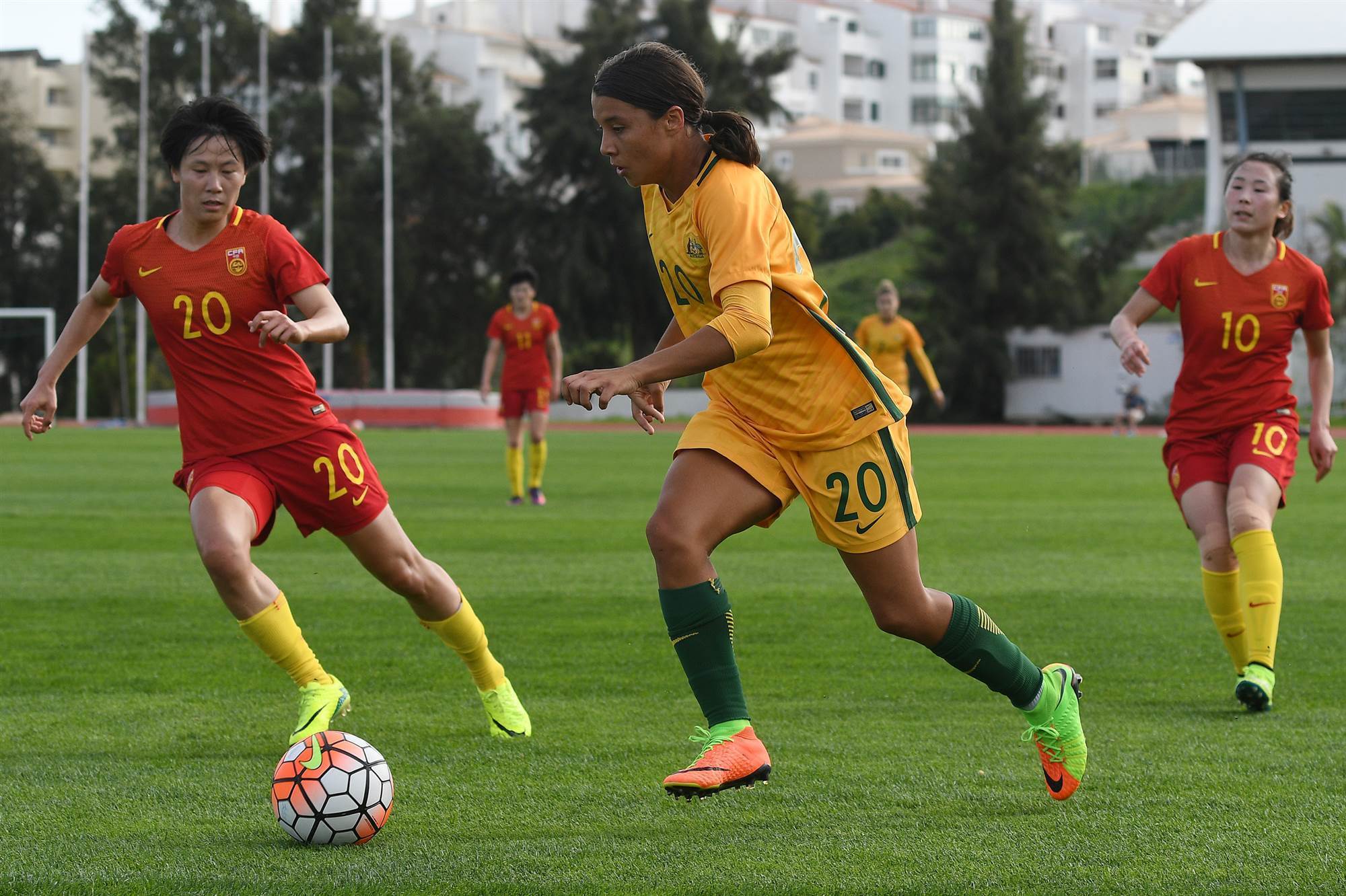The Matildas face Denmark tonight in the third place play-off of the Algarve Cup despite beating China 2-1 to round out the group stage in top spot.
After going behind to a swift counter attack and deadly finish from China’s Wang Shanshan, it was another strike from the tournament’s leading goalscorer Emily Gielnik that tied the game for the Aussies.
Less predictable was the source of the winner. Teenage sensation Ellie Carpenter, 16, popped up in the 84th minute to smash home a header from an Emily Van Egmond corner. The fullback’s first goal, in her sixth start for the Matildas, couldn’t have come at a more crucial time.
While finishing top of their group would usually secure a team progression to the next round, unfortunately for the Matildas the prestigious Portuguese tournament does things differently. Bypassing a second round, the top two teams based on group-stage performance qualify directly for the final.
Instead, Australia will battle for third place against 16th in the world Denmark. Despite finishing second in their group, and sitting ten spots below the Matildas in the FIFA world rankings, the Danes will be supremely confident going into the contest.
If it weren’t for a 90th minute winner from the ageless Christine Sinclair, Denmark would have replaced defending champions Canada in the final. The Scandinavians have proven themselves to be the in-form team of the tournament after demolishing hosts Portugal 6-0, then Russia 6-1 in their last two games.
A side with tremendous attacking aptitude, boasting an intimidating seven different goalscorers over two matches, Denmark look to be an emerging force in women’s football.
A nation long overshadowed by the comparative strength of their Swedish and Norwegian rivals may see the Algarve Cup as their chance to make a statement.
In Australia, they’re up against a side still seeking to impress themselves upon the European elite, while consolidating their position among the worlds best. In a rarity for Australian football, the Matildas go into this contest with more to lose.
Matildas coach Alen Stajcic has to balance the importance of giving opportunities to youth - recognising the lack of competitive fixtures on Australia’s horizon - while also taking into account the significance of a strong performance in this competition.
Some fresh faces have already emerged for the Matildas in Portugal. Much of their preparation has occurred behind the scenes, as before their opening loss to Sweden, Australia hadn’t played a competitive fixture since the heartbreaking defeat to Brazil in the Rio Olympics quarterfinal.
The Matildas coach affirmed his reputation for spotting emerging talent with the inclusions of Emily Gielnik and Ellie Carpenter, two starlets who will press relative veterans Caitlin Foord and Hayley Raso for a starting place against De Rod-Hvide.
Nevertheless, the Matildas took to the field with a more experienced attacking trio against China, Lisa De Vanna replaced young Alex Chidiac, while Gielnik made way for Kyah Simon.
Thought provokingly for Stajcic, it was immediately following the withdrawal of De Vanna that the Matildas got their breakthrough. Australia’s success, despite a lack of goals from the Matildas traditional dangers, speaks volumes of their depth. Yet it simultaneously casts doubt over a definitive best 11 going forward.
Stajcic has shown a willingness to experiment with the backline after cutting Laura Alleway from the final squad. The Matildas have shifted from a back three to four, while rotating inexperienced fullbacks.
While Claire Polkinghorne’s steady influence has been vital, there’s still a level of uncertainty and at times, Australia looked incredibly vulnerable to Chinese counter attacks. How they’ll cope with a rampant Denmark is an enticing, if not slightly worrying proposition.
That said, this tournament hasn’t been a showcase for defensive organisation. Australia’s shown we have a significant advantage over most competitors, both physically and in the air.
Every one of Australia’s five goals have come from crosses, with Van Egmond and Gielnik striking fear into short defenders and keepers alike. It’s a familiar tale for Aussie football, despite our insistence on playing a beautiful style, when it matters most it always seems to be a header that does the damage.
This is the first Australian appearance at the invitational Algarve Cup in 17 years. While it’s easy to overlook the importance of this tournament, Australian youth development relies on consistent, competitive matches.
There’s an argument the Matildas need to impress to demand our attendance, not just in Portugal, but across the array of invitational tournaments emerging in the women’s game.
Looking forward to tomorrow’s contest, whether Stajcic values consistency against Denmark remains to be seen, but after featuring 18 different players in their first three games, the Matildas can rely on few certainties approaching what promises to be a fiery display of attacking prowess.
Australia play Denmark at 1.45am tonight, broadcast live on Fox Sports 505.
Related Articles

Socceroos midfielder embraces move to England

'Timing not right': Montemurro's verdict on Matildas vacancy

